Marianne Kriel - Olympic Medallist
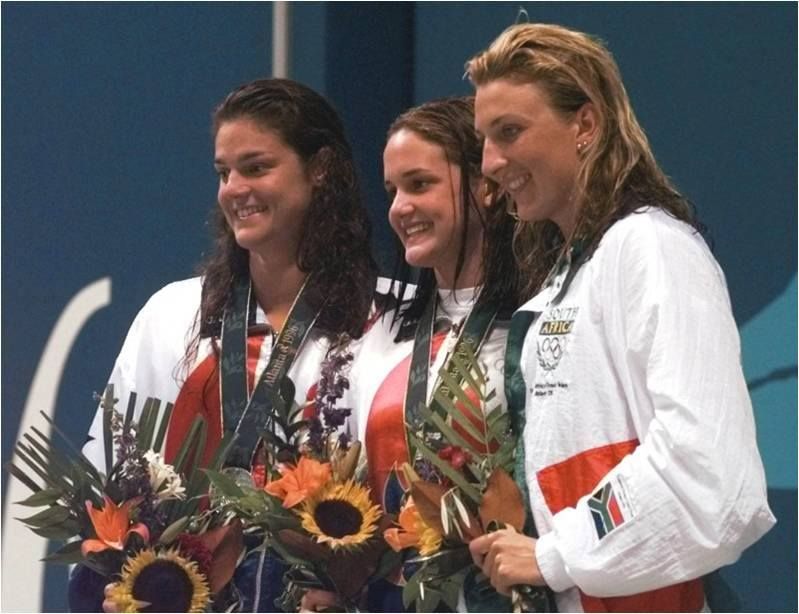
On the 22nd of July August 1996 at the Atlanta Olympic Games, Marianne Kriel won a bronze medal in the women's 100m backstroke.
Marianne was born on August 30, 1971, in Bellville, she attended Bellville High School and later completed a BA at Stellenbosch, where she swam for the Maties SC. Her coaches include Clara Aurik in Cape Town and Bruce Snodgrass and coach Scott Collins at Southern Methodist University in Texas.
Marianne also swam at the 1992 Olympic Games in Barcelona. She also won Springbok colours for biathlete and stillwater lifesaving.



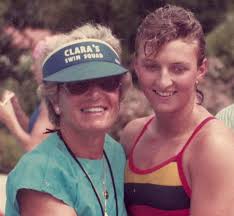
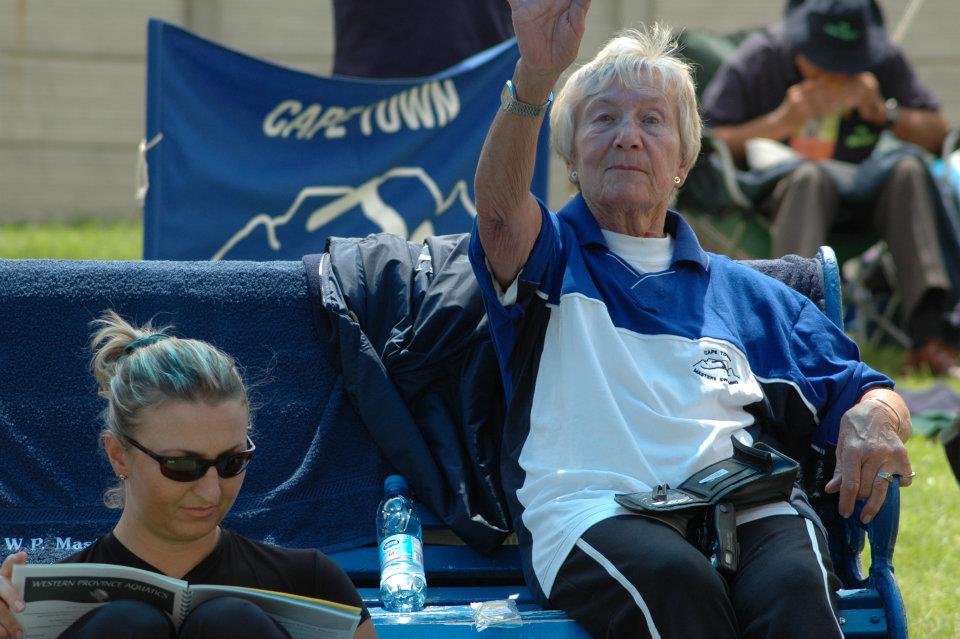
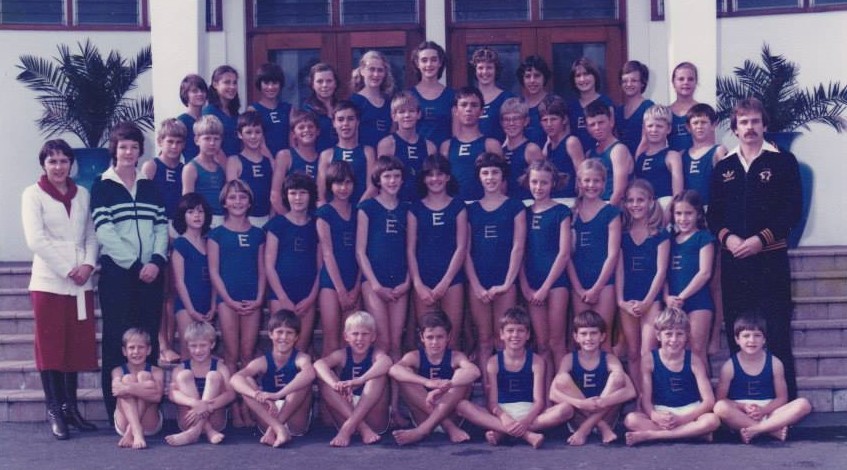
Laerskool Excelsior se atletiek span, Belville, 1980. Marianne Kriel staan tweede van links in eerste ry onder. Sy word in 1984 hoofmeisie benoem.
Ek was in die Hoërskool Bellville van 1985 – 1989 en dit was wonderlike jare. Ek hou baie van die feit dat Bellville gebalanseerd is: Sport, Akademie en Kultuur is belangrik en die skool verteenwoordig ook mense van verskillende agtergronde, ekonomiese omstandighede en familiesituasies. Dit help om ‘n mens minder bevooroordeeld te maak en dit is een van die beste lesse wat ‘n skool jou kan leer.
PRESTASIES • SA (Springbok)–kleure in swem, tweekamp en lewensredding • Houer van SA-Swemtitels en SA- en Afrika-swemrekords • WP- netbal, swem, atletiek, tweekamp, lewensredding • A-gemiddeld elke jaar, insluitend in graad 12-eindeksamen.
My beste oomblikke was altyd die groot atletiekbyeenkomste, die lekker wintersportdae en die lekker skoolatmosfeer. Die Hoërskool Bellville was definitief ‘n hoogtepunttyd in my lewe en ek sal vir altyd trots bly op my Alma Mater!
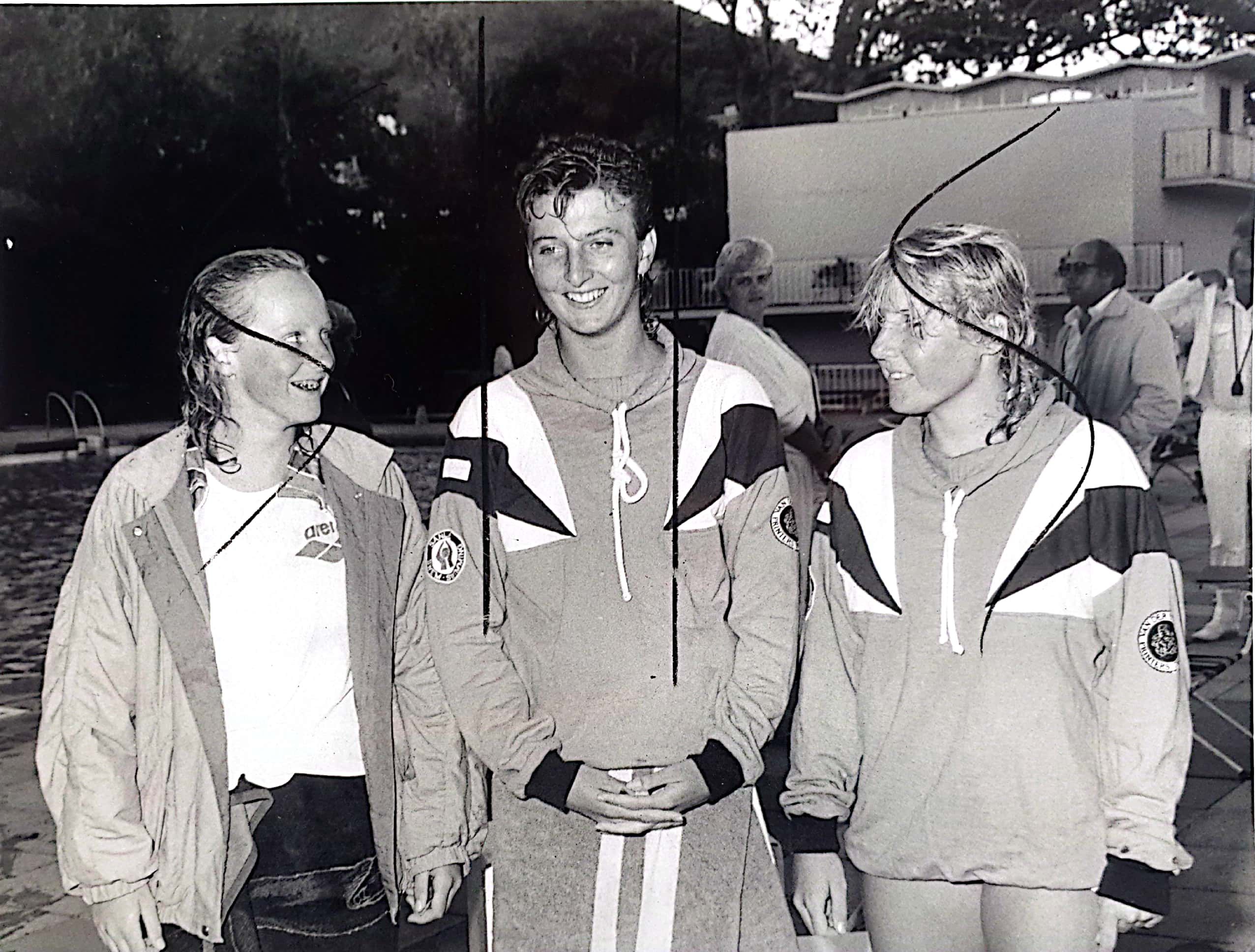
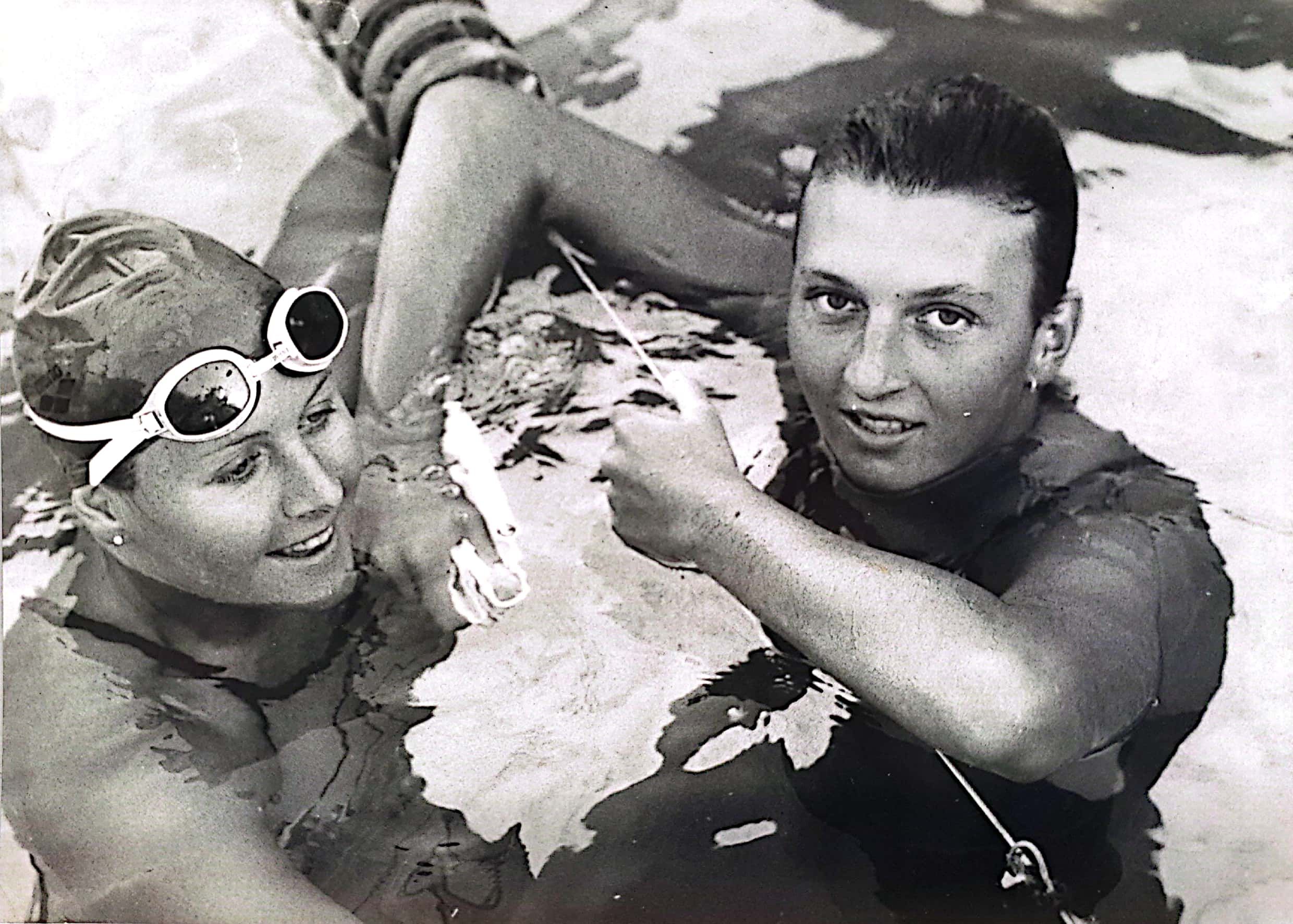
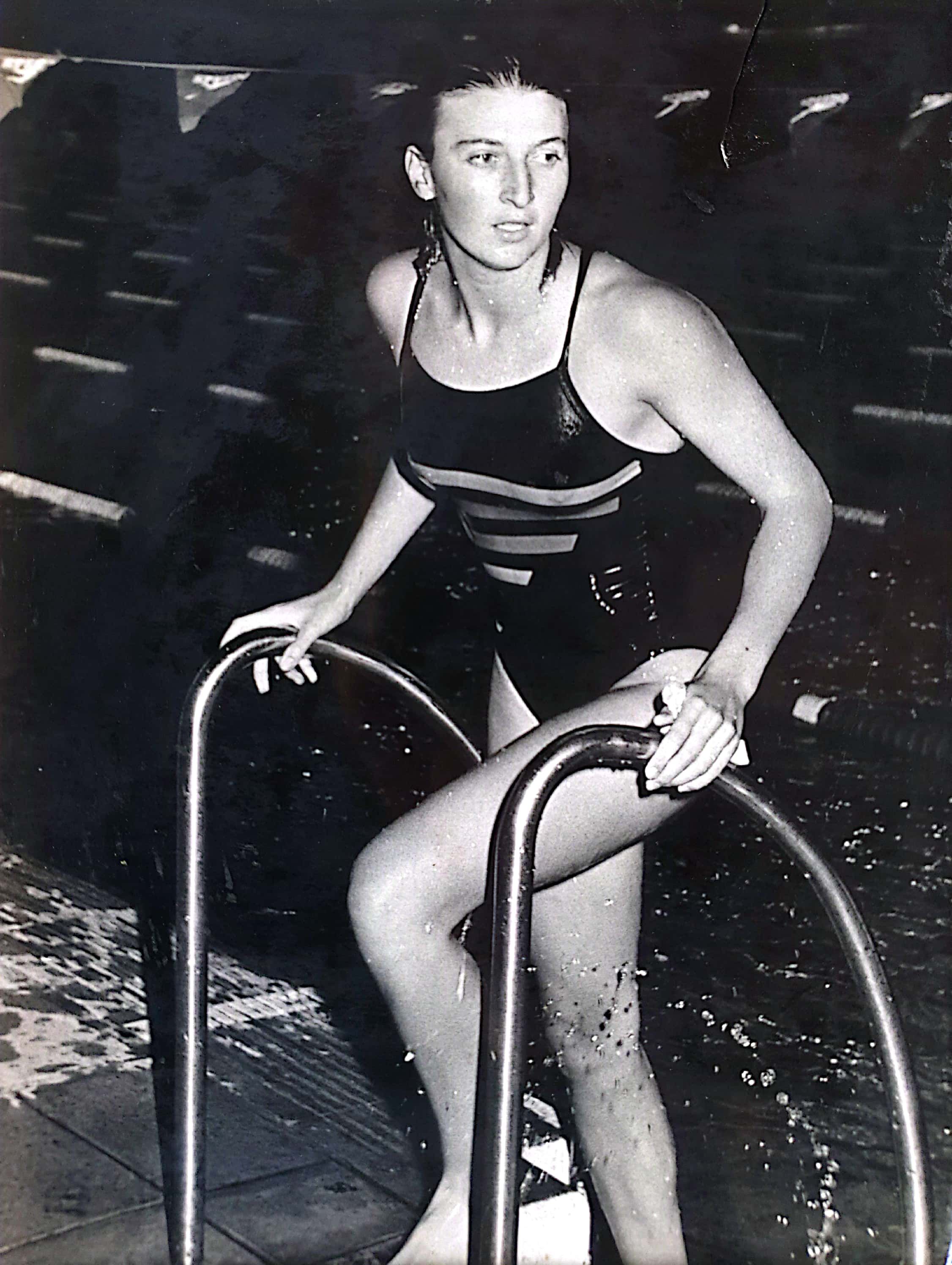
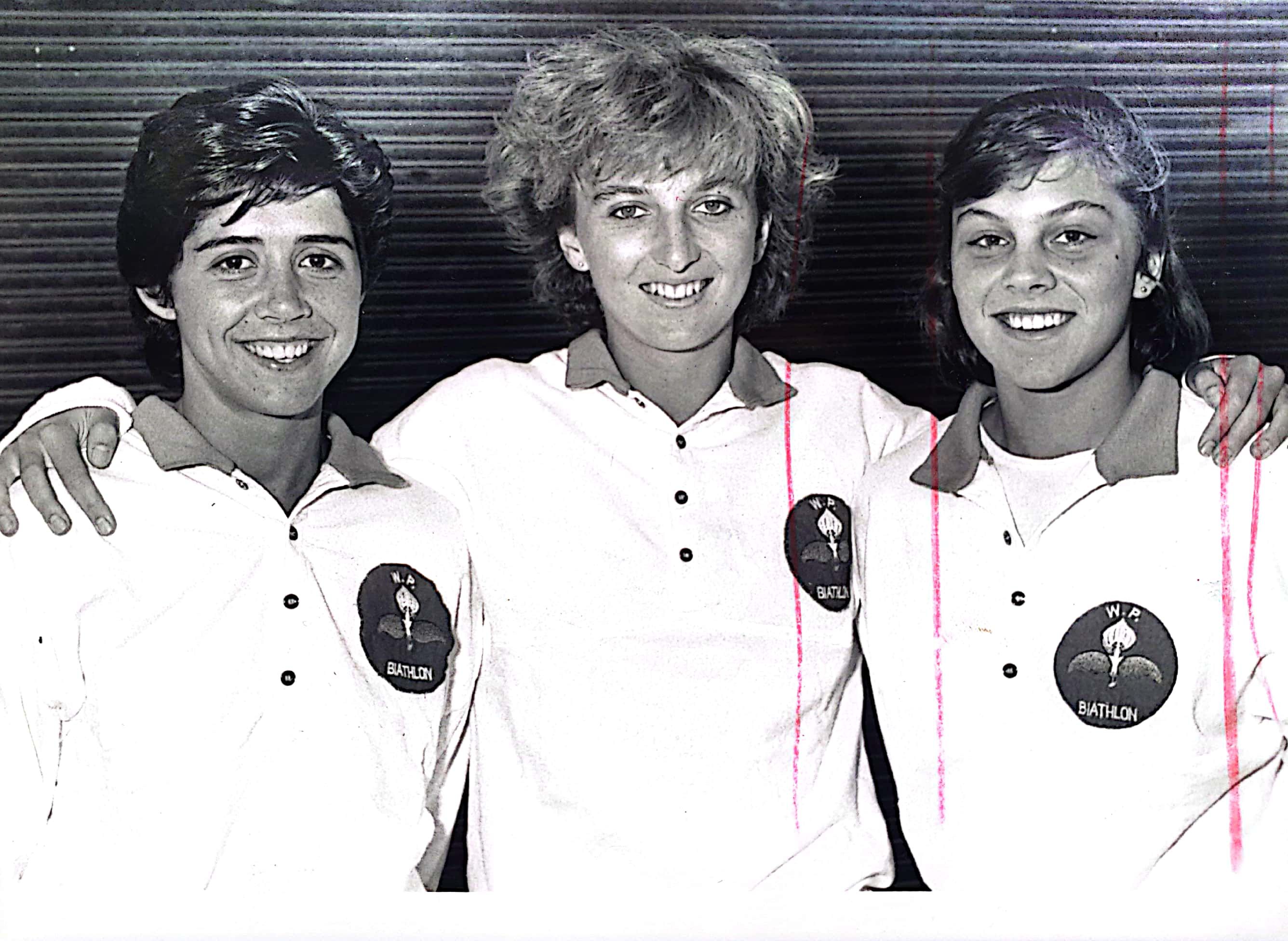
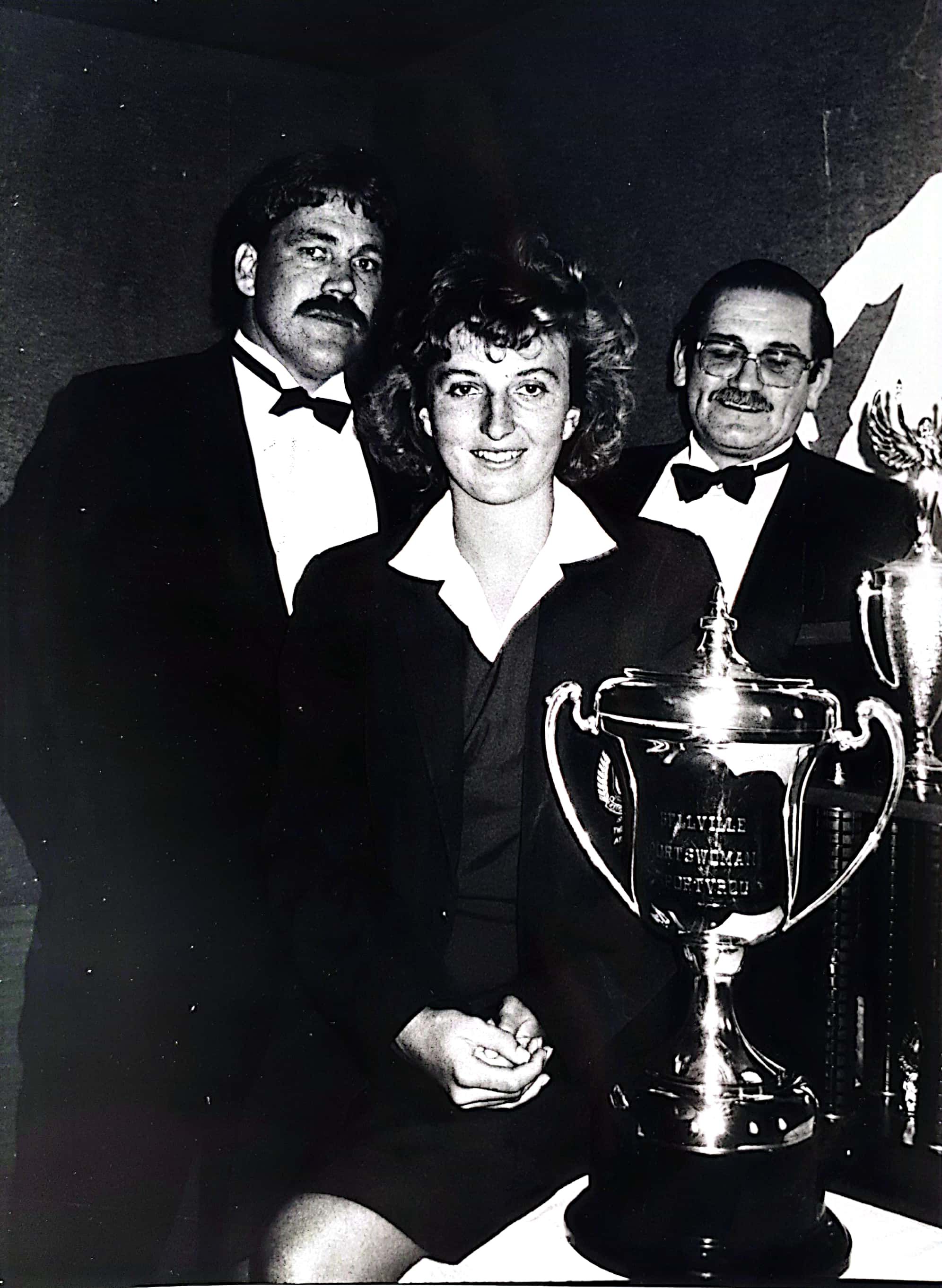
Awards
Cape Region Sportswoman of Year
Sportswoman of the Year | University of Stellenbosch Swimming Club
South African State President's Award: Silver
National Sports Council Service Award
National Sports Council Sportswomen of the Year
State President's Award for Swimming
Swimming Scholarship to Southern Methodist University (SMU) in Dallas, Texas
Competitive Accomplishments
Gold Medal | All Africa Games 100m backstroke | 1995
Bronze Medal | Atlanta Olympic Games 100m backstroke | 1996
Gold Medal South Circle Championships: Netball WPA
Gymnastics: WP Colours | 1979
Springbok Colours | Western Province Team | 1987
Biathlon: Western Province Team | 1982
South African and Africa record | 100m backstroke
South African and Africa record | 200m backstroke
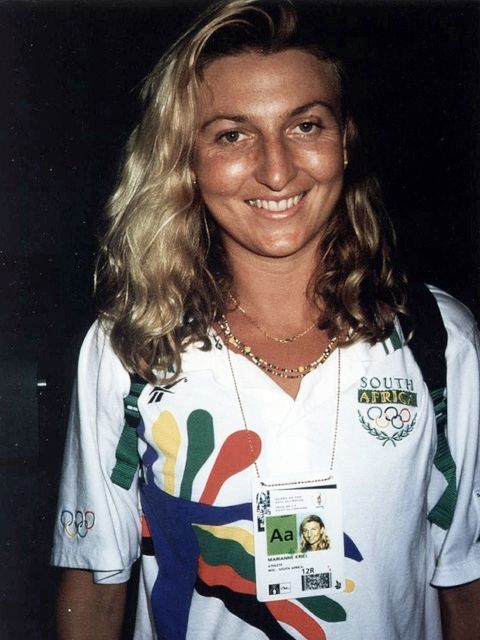
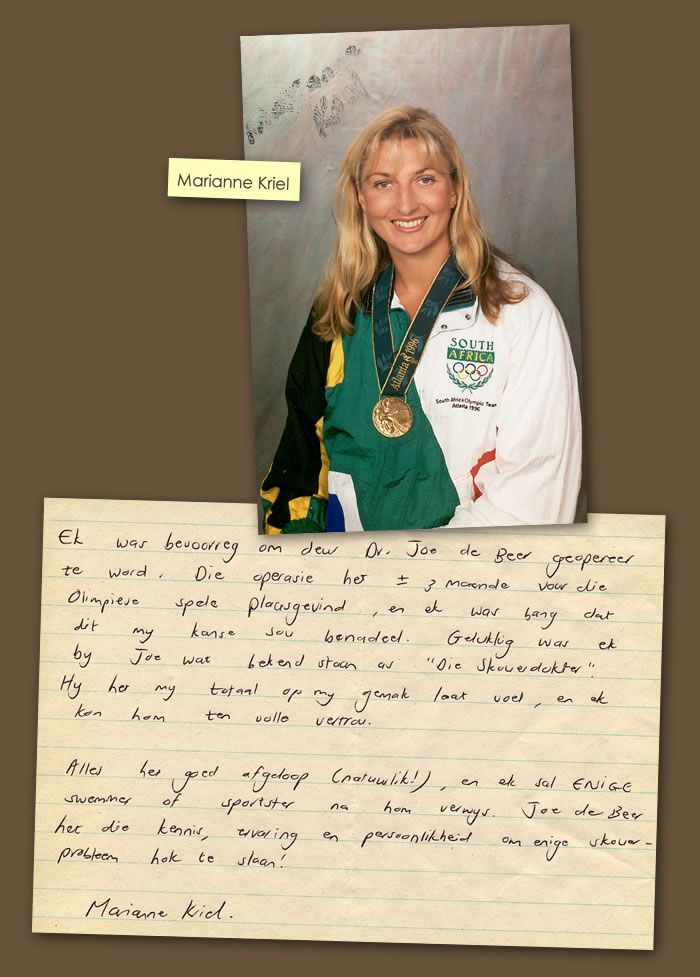
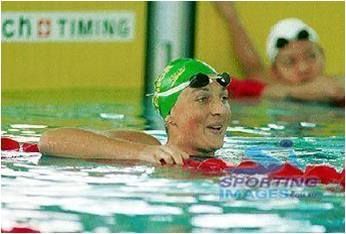
NOT ALL HER VICTORIES ARE IN THE POOL.
Marianne Kriel lost much of her career but has no regrets.
1996 Daily News
"I've swum against the same people for so long that it was kind of nice to lose the 50- and 100-meter freestyle," says Kriel, still the reigning backstroke champion. "It means we're developing. These are young girls who someday will be able to compete against the world."
Now 24 and suffering from tendinitis in her shoulders, Kriel knows her young teammates shouldn't take these opportunities for granted. She'll come to Atlanta next summer fully aware that her best years were stolen by a worldwide protest that kept South African athletes from competing internationally while the apartheid government ruled. She supported the ban when many white athletes of her generation became embittered.
While teenager Janet Evans of the United States was splitting pools from Sydney to Seoul, the perhaps equally talented Kriel was an iron woman stroking in obscurity in what amounted to in-country intramural meets.
"How much faster could she have been if she'd gotten to compete internationally as a 14-, 15-, or 16-year-old?" wonders Steve Collins, who coached Kriel at Southern Methodist University in 1991. Kriel smiles. In a warm, throaty voice, she says swimming fast stopped being a priority for her eight years ago: "I found out it was more important to be respected as a competitor, a person, a South African."
When Kriel was 16, she discovered the depth of the world's disdain for South Africa. She also felt the uneasy awareness that it was deserved. It was 1987, and somehow South African officials had managed to get a junior team invited to a swim meet in Luxembourg. Like her teammates, she was excited by the rare opportunity to face international competition.
On the morning of the meet, however, the organizers locked the door and wouldn't let the team in the building. "We were little girls, really, and these men were telling us through the door that Norway and Sweden had already left the pool deck and refused to compete if we were allowed in," recalls Kriel. "We were crying. But I couldn't help thinking that we deserved this. Not us, but our country. We deserved to be humiliated because we were doing terrible things."
Upon her return, she set out to be a small counterbalance to racist apartheid. No grand gestures. Just a kid being nice to other kids, whether they were black, "coloured" or Indian. It meant sharing a soft drink, looking people in the eye and initiating smiles.
In 1990, she did what every young South African who could did - went to America to study. To swim. She made friends, earned two top-eight finishes in the NCAA Championships, discovered Levis and cowboy boots and compact discs. Still, something was nagging at her. "I was embarrassed and ashamed about my country. I believed people thought I was racist and were ready to attack me."
Fortunately, she returned to a different country, one that was dismantling the apartheid regime and encouraging white and black hands to reach out for each other. Kriel did. She put together clinics for young black swimmers. She brought coaches and privileged white swimmers to pools that never held the two South Africans before.
When the National Olympic Committee of South Africa decided to put together an Olympic team for Barcelona, one woman's small, kind gestures were rewarded with a grand one: Marianne Kriel was named team captain and asked to lead the South Africans into the Olympic stadium. Iron woman Kriel was charming and gracious but didn't swim well in the 50- and 100- freestyle, the 100- and 200- back, or her relay. Still, she wouldn't exchange leading her new country into the Olympics for a medal. In Atlanta, Kriel will only back stroke.
Sore wings and all, she's pulled her way back into the world's top 12. She won't say what she expects from Atlanta, shrugging it off to survey an emerald pool filled with her teammates. Black ones. White ones. Mostly younger ones. Digging from wall to wall in roped-off lanes. "It's not important," she says, smiling. "What is, is that I am proud to say I'm a South African for the first time in my life."
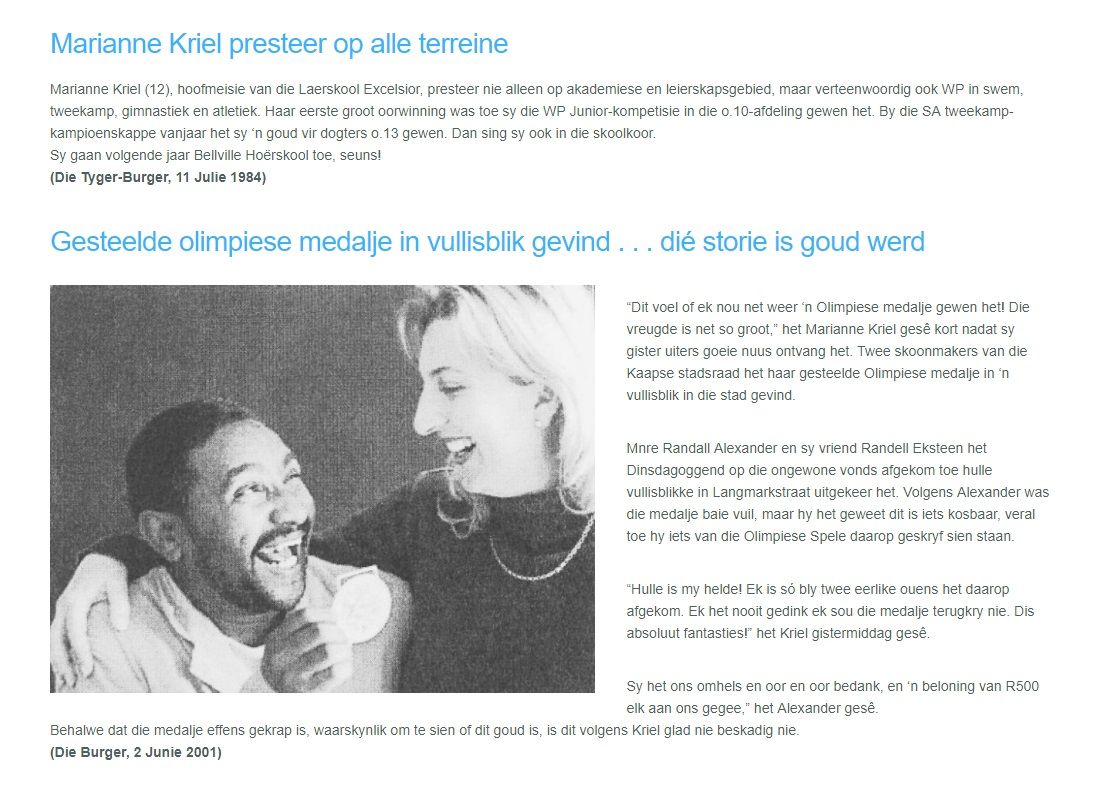
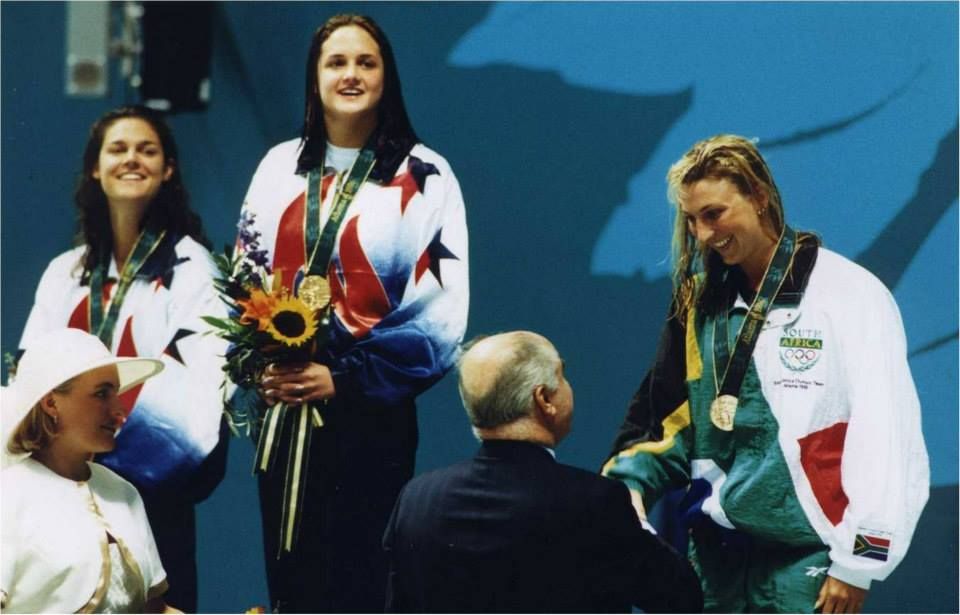
Women in Sport: ‘The greatest Olympic bronze ever’
19 Apr 2020
https://www.citizen.co.za/sport/women-in-sport-the-greatest-olympic-bronze-ever/
One of SA's most accomplished swimmers, Marianne Kriel sacrificed a lot to represent her country in the greatest sporting showpiece on earth.
She often fell just shy of the podium at international level, but for one Olympic cycle Marianne Kriel was one of South Africa’s best swimmers, and she closed out her career by standing tall on the biggest stage of all.
Born in Bellville, Kriel gave up a bursary at the Southern Methodist University in Texas in order to return home and ensure her inclusion in the national team for the 1992 Barcelona Olympics.
The sacrifice was worthwhile, and she achieved a lifelong goal when she lined up for the SA squad, as the nation made its return to the Games after decades of isolation.
At the age of 20, Kriel carried herself well at the showpiece, finishing 10th in the 100m backstroke and 13th in the 50m freestyle after reaching the B finals of both events.
Though her results did not create many waves, Kriel had dreamed of competing at the Games since she was a child, and her appearance alone was enough of a personal triumph.
Studying a BA in industrial psychology at Stellenbosch University at the time, she admitted, however, that her Olympic qualification had required a lot of effort.
“I was always tired, always hungry,” she told the Maties website, looking back on the early stages of her career.
“But my studies and friends in Stellenbosch also ensured that swimming did not take over my life. It gave me balance
and taught me to practice time management and prioritise.”
Despite having to juggle her commitments between training and studying, she turned out consistent results at major championships over the next few years.
In 1993, at the inaugural World Short Course Championships in Palma, Kriel finished seventh in the 100m backstroke and eighth in the 50m freestyle.
The following season, at the Commonwealth Games in Victoria, she finished fourth in the 100m backstroke final, touching the wall in 1:03.61 and missing the podium by just 0.34sec.
She also formed part of the SA relay teams who finished fourth in the 4x100m and 4x200m freestyle events, as well as the 4x100m medley.
All her efforts, however, were geared towards her return to the Olympics in Atlanta in 1996, where she planned to retire from competitive swimming.
And Kriel’s 1995 season suggested something special was on the cards.
The year before the Games, she displayed superb form by earning six medals at the All Africa Games in Harare, including gold in the 100m backstroke.
Closing out the pre-Olympic season at the World Short Course Championships in Rio, she finished sixth in the 100m backstroke and ninth in the 200m backstroke, signalling she was ready to target a memorable performance in Atlanta.
At the Games, she went on to set an African record in the 100m backstroke.
She also joined Penny Heyns, Mandy Loots, and Heleen Muller as the SA team took fourth spot in the women’s 4x100m medley relay final, missing out on a medal by less than a second.
“I must have been the most elated bronze medal winner at the Olympic Games,” Kriel told Maties.
It was just a reward for years of turning out seemingly endless lengths of the pool in training and racing, and her Olympic medal remains a prized possession.
Having returned home in 2018 after spending nearly 20 years in the US, where she worked as an administrator for a church, Kriel has since launched the SwimSol swimming school in the Western Cape.
Now 48, she feels her career story assists her in connecting with the youth as she helps them chase their own goals and dreams.
“I enjoy encouraging young people to use and develop their talents,” she said.